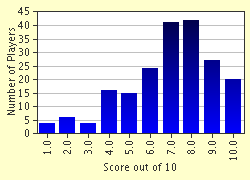Quiz Answer Key and Fun Facts
1. George Meredith was alluding to which thorny subject when he said, "The last thing civilized by man..." ?
2. Ernst Toller was in turn a socialist, a union organizer, a pacifist, and political exile...in the span covering World War I and after. He had this line to say about WHICH subject: "...propaganda of the victors"?
3. Oscar Wilde used this line -- "The name everyone gives to their mistakes..." -- to describe what thing?
4. Voltaire wrote this -- "...an opinion without judgment" -- to say what he thought about which thing?
5. Karl Marx had this observation to dangle over all and sundry about which thing: "____ is the opium of the people."
6. Oscar Wilde was probably being whimsical when he chose the following words to describe which thing: "the diary we all carry about with us..." ?
7. "The right to do what the laws allow...," was Charles Montesquieu's comment about which subject matter?
8. For Herbert Spencer THIS was "...that which man is always trying to kill, but which ends up killing him."
9. Robert Ingersoll said, "...places where pebbles are polished and diamonds are dimmed" , and he meant this opinion for THIS:
10. Henry Beecher had this to say about which volatile subject: "...the river of life in this world."
Source: Author
ugleee
This quiz was reviewed by FunTrivia editor
thejazzkickazz before going online.
Any errors found in FunTrivia content are routinely corrected through our feedback system.

